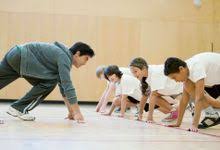Friday, December 14, 2018
Physical Education Requirements in New York State
Since volunteering with students on the autistic spectrum, Yonkers, NY, resident Michael (Mike) Paulercio has continued to pursue his goal of working with youth. Mike Paulercio recently completed his studies in physical education at Westchester Community College, a member of the State University of New York higher education system.
In an effort to reduce childhood obesity and encourage healthy habits, each state imposes regulations as to the amount of required physical education offered in elementary and secondary schools. In New York State, all students in the sixth grade and under must have at least two hours a week of scheduled physical activity, which excludes outdoor recess time. In addition, daily gym classes are required for kindergarteners and children in first, second, and third grades. Further, high school students must earn at least a 2.0 in physical education to obtain a diploma.
Except in cases of medical necessity, students are not permitted to waive their participation in physical education. However, student athletes who can demonstrate proficiency in their sport may be eligible for exemptions.
Friday, December 7, 2018
The Value of Physical Education Programs in Schools
Michael (Mike) Paulercio is studying physical education at Westchester Community College in Valhalla, New York (NY). Upon completion of his degree, Mike Paulercio of Yonkers, NY, plans to be a physical education teacher.
Physical education programs teach children a variety of life skills and are proven to enhance physical and mental health. Below are some of the top benefits for children who participate in physical education programs.
1. Encourages an active lifestyle. Youth who take part in physical education are more likely to be active outside of their academic program, and twice as likely to live active adult lives as a result of being conditioned to getting exercise in their childhood years.
2. Improves academic performance. Research shows that active children perform better as students.
3. Facilitates skills development. Physical education helps children develop self-discipline and learn to set goals.
4. Enhances social skills. Taking part in physical education helps kids to strengthen their relationships with their peers, be respectful, and cooperate with others.
5. Encourages self esteem. Children involved in physical education classes gain confidence and increase their self-respect.
Subscribe to:
Posts (Atom)

